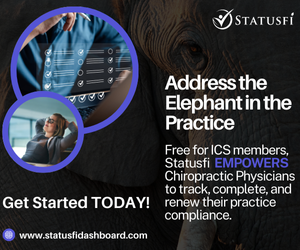
Baseline Requirements for Financial Hardship Policies
You have a patient that comes into your office that has a financial need. The question is, when can you give a discount? This week we cover questions about baseline requirements for financial hardship discounts.
Transcript:
We have a number of resources available for members regarding financial hardship policies in your practice. And, of course, we all have patients that come into our practice that have financial need. The question is, when can we give discounts? Of course, there are limitations that are placed by PPO contracts, and of course, Medicare, when we start talking about gifts, and inducements, anti-kickback, and things along those lines. So we have to be incredibly careful in this arena to really dot our i’s and cross our T’s now, I would encourage you to take a look at all of our resources in regards to financial hardships. In fact, we have actually a template policy that you can download. Remember, all of our forms and templates are available for members – jump out to Ilchiro.org. And if you look at the top, you’ll see member benefits. One of the key items underneath member benefits in that drop-down menu are forms and templates, grab that and you’ll see a vast array of a number of different forms and templates available.
But when it comes to your financial hardship policy, it’s really important to kind of understand a baseline, and Medicare and OIG really kind of set that example both for the PPO agreements and for Medicare. And really many times, if you’re meeting that Medicare requirements, the Medicare requirements for the financial hardships, then then you also be able to do that for your private insurance carriers as well. Years ago, the chief counsel to the inspector general testified in front of the Subcommittee on Oversight and Investigations and laid out the requirements that they have in the safe harbors that they put in place for providers. Primarily it was for hospitals, but this is this is an easy example to be able to point to, and how to provide financial hardship and reduce fees for your patients that have financial hardship. So what did He lay out there?
Well, first of all, they said that you may consider these things, the local cost of living, a patient’s income, assets, and expenses, the family size, and the extent of their overall medical bills. All of those things could be taken into consideration in your financial hardship policy. Now, this is really important, they also laid out or he also laid out in his testimony, what the guidelines must be must include. Well, first of all, the guidelines have to be reasonable, they have to be objective, they have to be appropriate for the location, they must be documented, and they have to be applied uniformly. So there’s a lot of information out there on what to gather, and you’ll see it in our template form. We talk about gathering assets and income and family size and those types of things to be able to uniformly apply a policy in your practice.
The call that we received recently was from a doctor who said, Mark, I’ve got some I’ve got some patients that really are reluctant to share that information with me. Well, the good news is, in this testimony, you laid out some of the things but it’s going to require more work on your part in order to remain compliant. You can’t just carte blanche, and say that it’s okay. And you’ll remember from a previous video, you can’t just say, well, they’re on Medicaid, therefore, that actually is specifically precluded, you have to have a policy in place, and you have to be able to document it. And it has to be reasonable, and it has to be applied across the board. But in those cases where a patient is reluctant to share that information, they do give another alternative. And that is, you can have interviews and additional questionnaires for them. And so, you know, at the end of the day, they’re going to have to share some information, they’re going to have to provide something to you to clearly demonstrate that they are in a financial hardship position. And that is to in that’s to protect you, right, we want to make sure that you’re protected from the anti-kickback statutes and challenges that would arise or would be risen if you if you jumped through, didn’t jump through the appropriate hoops. Also, you want to make sure that you’re not breaking through some of the challenges that are introduced with the gifts and inducement laws for Medicare as well are in violation of your PPO contract. So again, you want to make sure that they’re all reasonable objective appropriate for your location for your geographic location and for your area. You have to document it very clearly and apply it uniformly check out our policy that we have online. It has all of those components, and we’ll catch you next week.



















